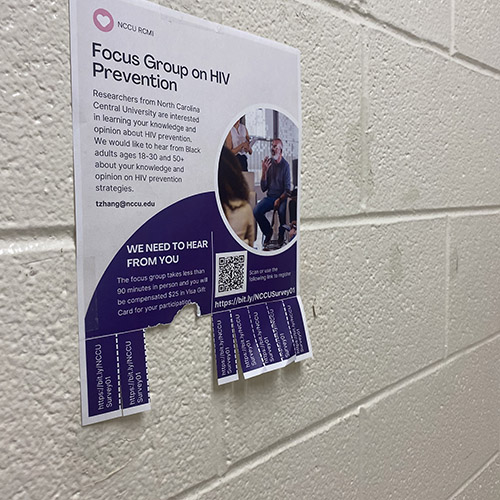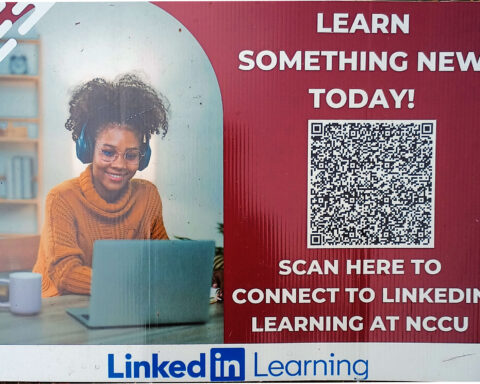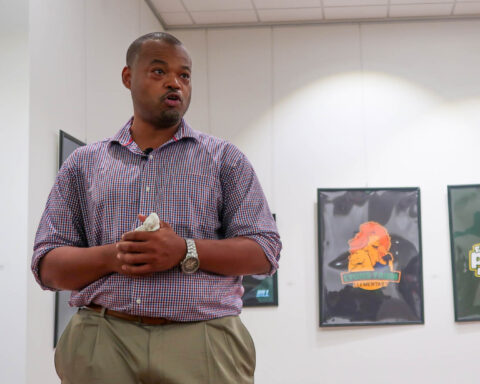N. C. Central University, in partnership with ViiV Healthcare, will be exploring attitudes to HIV using focus groups. The plan is to shape future prevention and treatment strategies.
Focus groups are diverse, structured discussions, providing vital insights into attitudes, opinions and decision-making.
The head NCCU researcher, Tianduo Zhang, an assistant professor in mass communication, has been recruiting students since early last summer.
She will conduct focus groups with students and other Black adults ages 18-50. Focus groups can be described as guided discussions with 6-10 individuals.
“Black people are several times higher to contract HIV,” Zhang said. “We wanted to know what we can improve in health literacy or health communication, to help people take preventative measures.”
According to Zhang and Claudia Alberico, another member of the HIV research team the conversation surrounding HIV in the Black community has too-often been shrouded in taboo, stigma, misinformation, and misconceptions.
Accordingly, understanding HIV attitudes, opinions, and decision-making is paramount to improving the health and well-being of the Black community.
“Because HIV is a heavy subject, it is not talked about and seen as negative,” said Alberico.
“If we don’t talk about it, it does not exist, which makes it hard for researchers to have community engagement.”
Zhang worries that today’s college students aren’t open about HIV and she says this may be a “health literacy” issue.
She says that fostering a safe and open dialogue, getting testing, having access to crucial information, and receiving proper care empowers students.
Ethical considerations are critical when conducting HIV, or any medical research.
Participants sign a consent form when joining the research, which informs them of their right to withdraw at any time. To protect participant identities, each person in the focus groups is assigned a number.
During the focus groups participants can hear each other, which promotes discussion, but things are arranged so that they don’t even see each other.
According to Alberico it’s essential that researchers understand how people – especially minority populations – receive and share information within their unique community cultures.
With this understanding community engagement and advocacy can be improved.


















